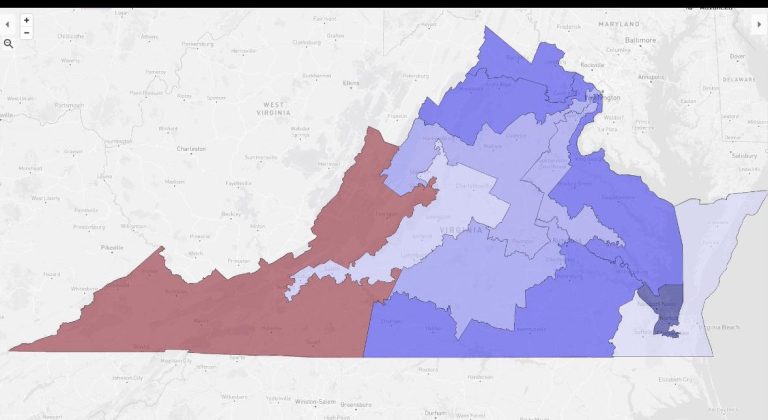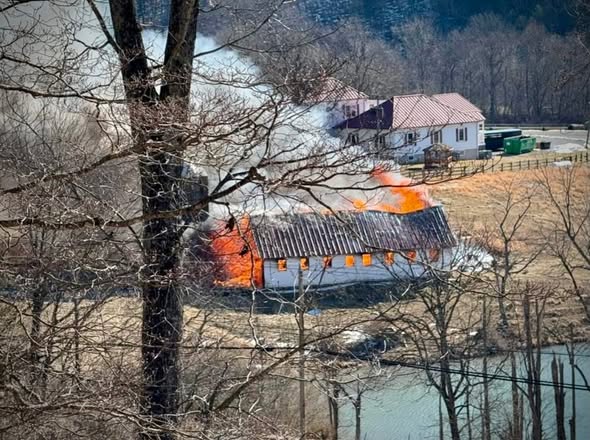 RICHMOND, Va. (AP) — Much like the presidential contest, the U.S. Senate race in Virginia has been heavily shaped by the coronavirus. Unlike the presidential contest, few people are paying attention.
RICHMOND, Va. (AP) — Much like the presidential contest, the U.S. Senate race in Virginia has been heavily shaped by the coronavirus. Unlike the presidential contest, few people are paying attention.
Virginians are nearly two weeks away from deciding between two-term incumbent U.S. Sen. Mark Warner and Republican challenger Daniel Gade, a political newcomer, in a contest that’s become largely an afterthought.
Warner, who played a high-profile role as the highest-ranking Democrat overseeing the Senate Intelligence Committee’s investigation into Russian interference in the 2016 presidential contest, is widely considered the favorite.
The pandemic and the presidential contest between President Donald Trump and former Vice President Joe Biden has left little room for voters’ attention. And the highly contagious nature of the disease has prevented both candidates from the traditional stumping that defines traditional campaigns.
“It feels a little bit like a science fiction movie,” Warner said, referring to socially distanced campaign events he’s held outside with attendees wearing masks and face shields.
Both Warner and Gade say the virus is at the top of voters’ minds, and Trump’s response as been the key flashpoint in the race so far.
Gade, a retired Army officer who lost a leg in a Humvee explosion while serving in Iraq, said while there’s “certainly things we could have done better,” he thinks the Trump administration deserves the benefit of the doubt in how it handled a once-in-a-lifetime pandemic.
“On balance, the president has done the best he could,” said Gade, who also criticized Warner for not voting for a second round of COVID-19 relief that Senate Republicans proposed.
Warner said he wants an additional relief package and is eager to work with the Trump administration to figure one out. But he said Gade is “fundamentally wrong” when he praises Trump’s handling of the virus. He said that seven months into the pandemic, the Trump administration has failed on a wide range of issues, from beefing up the domestic supply chain of personal protective equipment to implementing a national testing strategy.
“I don’t think that’s a record you want to be repeated,” Warner said.
Warner has numerous advantages over Gade. He’s a former governor who is well known by much of the electorate as a tech and business savvy moderate. He’s raised about $11 million this election cycle to Gade’s $1 million, according to the Virginia Public Access Project.
Conservative national groups and donors are focused on saving vulnerable GOP senators in other states as Republican prospects for holding its 53-47 majority have been darkening for months.
Warner came surprisingly close to losing six years ago, but Virginia has tilted far more to the left since then thanks in large part to suburban voter disenchantment with Trump.
“There’s nothing in my outer imagination that makes me think Warner can lose this race,” said Quentin Kidd, a political science professor at Christopher Newport University.
Gade was Trump’s appointee to serve on the Equal Employment Opportunity Commission but withdrew his nomination after a lengthy delay in the Senate over his confirmation. He insists the race is much closer than people think and is ultimately winnable.
He has focused his message on trying to tag Warner as an ineffectual and disinterested career politician. Gade’s first negative ad includes video of a much younger-looking Warner declaring during a 1996 Senate bid that he would only ever serve two terms in the Senate.
Gade also mocked Warner for saying the most important job he’s ever had in public service was overseeing the intelligence committee’s Russia investigation. Gade said the committee’s bipartisan reports, which affirm the U.S. intelligence community’s conclusions that Russia interfered in the 2016 presidential election in a far-ranging campaign approved by Russian President Vladimir Putin and aimed at helping Donald Trump win the White House, were underwhelming.
“It’s a big fat nothing-burger,” Gade said.
Warner said the committee has done invaluable work protecting national security and improving election security from foreign adversaries. He said the committee’s ability to get such work done amid a largely dysfunctional Congress highlights his growing ability to get things done in a bipartisan matter. He said he was wrong when he advocated for term limits 24 years ago, saying it takes time to learn how to be effective in the Senate.
“These last couple of years, I put a lot more points on the board,” Warner said.



